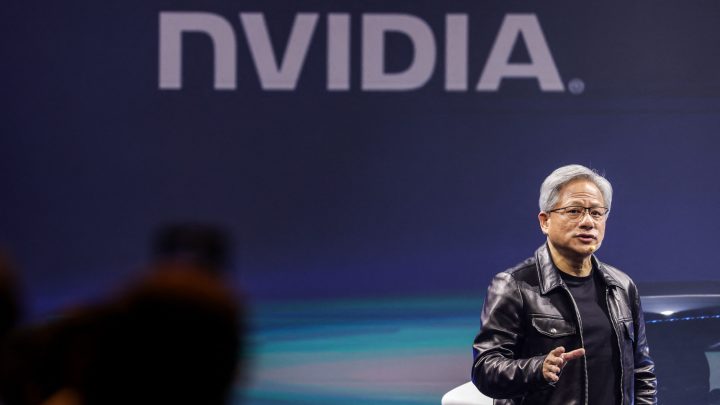
AI might not take your job after all

Shares of chipmaker Nvidia continued to climb on Wall Street Monday, hitting a record high. The company makes the state-of-the-art graphics processing units that power generative artificial intelligence, for which there seems to be insatiable demand right now.
The AI boom has been transforming the tech sector, and there are predictions it will transform the rest of the economy too as bots become increasingly capable of taking over human work. New research from the Massachusetts Institute of Technology, though, suggests that might not happen to the extent that many people fear, or hope, depending on where you sit. That’s because paying human workers can be cheaper than buying into new tech.
Take that, robots! We humans might actually be a pretty good deal.
The MIT working paper found that it would be cost-effective to use AI in less than a quarter of the work it could technically do.
“Sometimes, you just need such a high quality of system that building an AI system with that level of quality can often be very, very expensive,” said Neil Thompson, director of the FutureTech research project at MIT’s Computer Science and Artificial Intelligence Lab, which conducted the analysis.
Now, the kind of AI that MIT considered wasn’t the new, buzzy ChatGPT. They looked at work that could be done using computer vision systems, which analyze images or video.
It includes everything from reading an X-ray to performing quality-control inspections of, say, flour at a bakery.
Investing in this kind of automation may make sense only for big companies that would use it a lot.
“We think about self-checkout lines, right? We do see them at the Walmart and Costco. We don’t see them at the corner store,” Thompson said.
But new generative AI systems like ChatGPT have the potential to be more disruptive, said Anton Korinek, an economist at the University of Virginia.
“They can perform a wide array of tasks with much less customization,” he said.
Plus, businesses don’t need to spend a lot on new hardware or software to use a chatbot that’s available for free or a low monthly fee. Though they probably will want to customize it to minimize security risks or mistakes, said Emily Rose McRae, an analyst at Gartner.
“You might get your own version of the tool that you can fine-tune. But that fine-tuning costs money,” she said.
And the low prices AI companies are charging now don’t come close to covering their costs, said Dylan Patel at SemiAnalysis.
“These massive models cost hundreds of millions of dollars to train and billions of dollars to use,” he said.
Patel estimates ChatGPT costs developer OpenAI and its partner Microsoft about $700,000 a day to run, thanks to its extensive computing and network demands. And that’s before dealing with all those copyright infringement lawsuits.
There’s a lot happening in the world. Through it all, Marketplace is here for you.
You rely on Marketplace to break down the world’s events and tell you how it affects you in a fact-based, approachable way. We rely on your financial support to keep making that possible.
Your donation today powers the independent journalism that you rely on. For just $5/month, you can help sustain Marketplace so we can keep reporting on the things that matter to you.

















